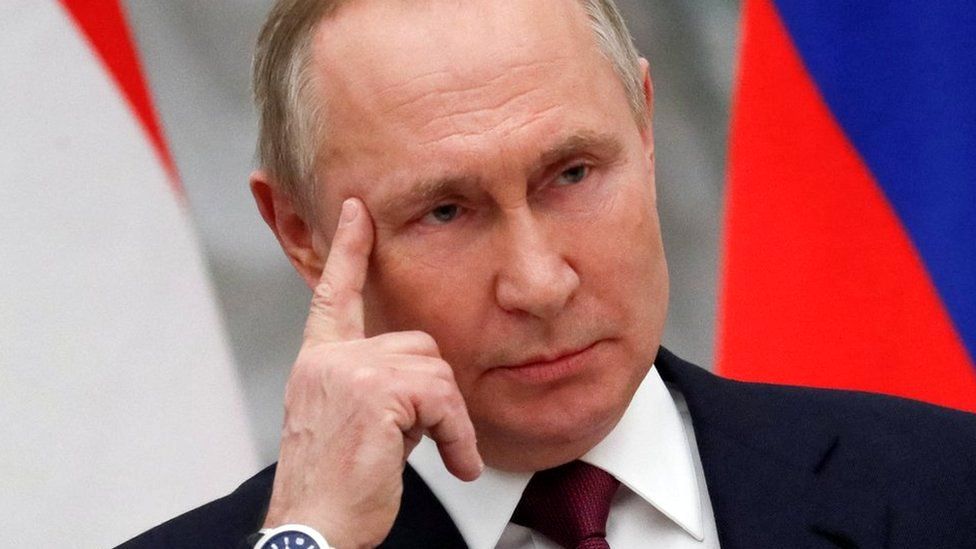Putin russia ukraine news

Since his election in 2000, Vladimir Putin has been the President of Russia. He is currently serving his fourth term, having been re-elected in 2018. Putin’s rise to power was marked by his strong support from the Russian military and security services. He also enjoyed high approval ratings from the Russian public.
Under Putin, Russia has seen a period of stability and economic growth. However, his rule has been criticized by some for its authoritarianism and human rights abuses. In recent years, Putin has been involved in a number of international crises, including the 2014 Ukrainian crisis and the 2018 Syrian crisis.
Putin’s Rise to Power
Vladimir Putin’s rise to power began in the late 1980s, when he was appointed as an advisor to Soviet leader Mikhail Gorbachev. Putin quickly rose through the ranks of the Soviet government, and in 1991, he was appointed as the head of the KGB. After the collapse of the Soviet Union in 1992, Putin returned to his home city of Saint Petersburg, where he began working for the mayor’s office. In 1996, Putin was appointed as
First Deputy Prime Minister of Russia by President Boris Yeltsin. Putin quickly became one of the most powerful men in Russia, and in 1999, Yeltsin named him as Prime Minister. In 2000, Putin was elected as President of Russia, and he has been re-elected twice since then. Under Putin’s leadership, Russia has become a major world power once again. Putin has worked to improve Russia’s economy and increase its international influence. He has also been a key player in global affairs, often taking a leading role on issues like the Syrian conflict and the 2014 Ukrainian crisis.
Putin’s domestic policies
Since coming to power in 2000, Vladimir Putin has pursued a number of different domestic policies. Perhaps most notably, he has worked to centralize power within the Russian government and reduce the influence of regional governors and other local officials. He has also cracked down on political dissent and media freedom, and pursued a number of economic reforms. Putin’s centralization of power has been one of his most controversial domestic policies. By weakening the authority of regional governors and other local officials, Putin has made it easier for the Kremlin to control the country as a whole.
This policy has been criticized by many Russians who believe that it has led to a more authoritarian government. Putin’s crackdown on political dissent and media freedom has also been highly controversial. In recent years, the Russian government has passed a number of laws that have made it harder for opposition parties to operate and for independent media outlets to report on the government’s activities.
These policies have been criticized by human rights groups as well as by many ordinary Russians who believe that they are being denied their right to free speech. Finally, Putin has pursued a number of economic reforms since coming to power. These reforms have included privatizing some state-owned companies, deregulating certain industries, and introducing new taxes on some businesses. While these reforms have helped to boost the Russian economy, they have also been criticized by many Russians who believe that they have led to higher prices and increased inequality.
Putin’s foreign policy
Since coming to power in 2000, Vladimir Putin has pursued a foreign policy aimed at restoring Russia’s status as a great power. This has included reasserting Russian control over its “near abroad” – the former Soviet republics – and becoming more involved in global affairs. In recent years, Putin’s foreign policy has been increasingly shaped by the conflict in Ukraine. In 2014, Russia annexed the Crimean peninsula from Ukraine, and has been supporting pro-Russian separatists in eastern Ukraine. This has led to tensions with the West, and Putin has been accused of trying to destabilize Ukraine.
The conflict in Syria is another area where Putin’s foreign policy has come under scrutiny. In 2015, Russia began carrying out airstrikes in Syria, ostensibly to target terrorist groups like ISIS. However, many believe that Russia’s real goal is to prop up the Syrian government and ensure that President Bashar al-Assad remains in power. Critics say that Putin’s foreign policy is reckless and aggressive, and that it is making Russia more isolated from the rest of the world. Supporters argue that Putin is simply standing up for Russia’s interests, and that he is a strong leader who is not afraid to take on the West.
The 2014 Ukrainian Crisis
The 2014 Ukrainian Crisis began when then-President of Ukraine, Viktor Yanukovych, made the decision to pull out of signing a trade agreement with the European Union. This move angered many Ukrainians who saw it as a step back from closer ties with Europe.
Yanukovych’s government then began to crack down on protesters, leading to mass demonstrations and eventually his ousting from office. Russia, which had been backing Yanukovych, then intervened in Ukraine, annexing Crimea and sparking a conflict in eastern Ukraine that continues to this day.
The 2018 Syrian Crisis
In 2018, Syria was in the midst of a civil war. Russia, under the leadership of President Vladimir Putin, intervened on the side of the Syrian government. This intervention turned the tide of the war in favor of the Syrian government and allowed them to regain control of much of the country. The Russian intervention in Syria was widely criticized by the international community. Critics accused Russia of propping up a brutal dictator, Bashar al-Assad, and causing civilian casualties.
Despite the criticism, Putin continued to support Assad and helped him to stay in power. The Russian intervention in Syria was a major foreign policy success for Putin. It solidified his position as a key player in the Middle East and showed that Russia was a major force to be reckoned with on the international stage.
Conclusion
In conclusion, it is clear that Vladimir Putin is a complex leader with a great deal of power. His domestic and foreign policies have had a profound impact on the world stage, and his actions in Ukraine and Syria have been particularly controversial. While some may view him as a strong leader, others see him as a dictator. Regardless of one’s opinion, it is undeniable that Putin is a powerful figure who has shaped the course of history in the 21st century.






